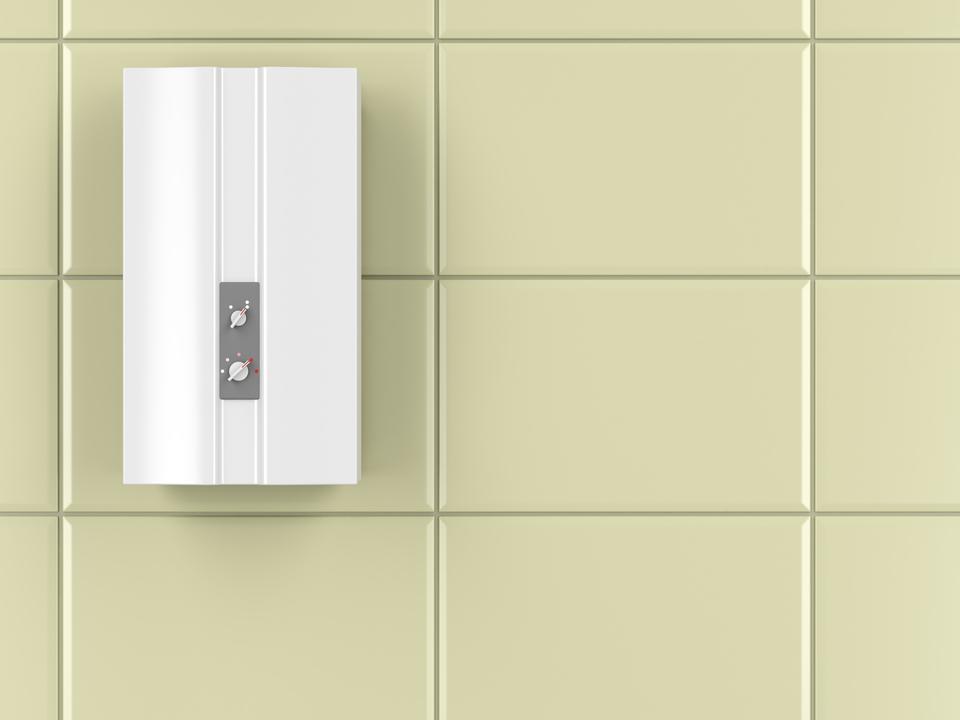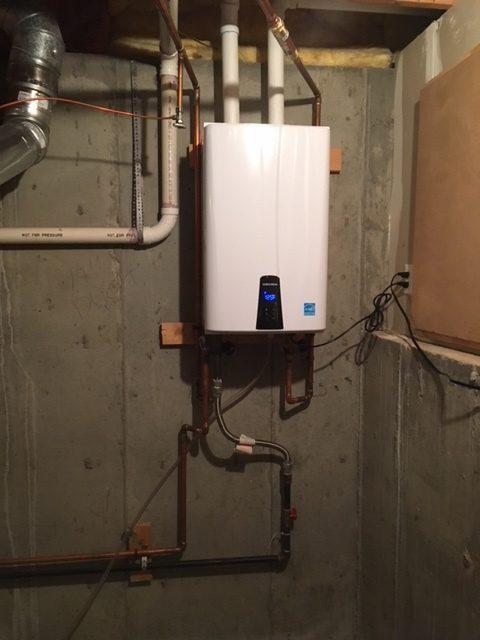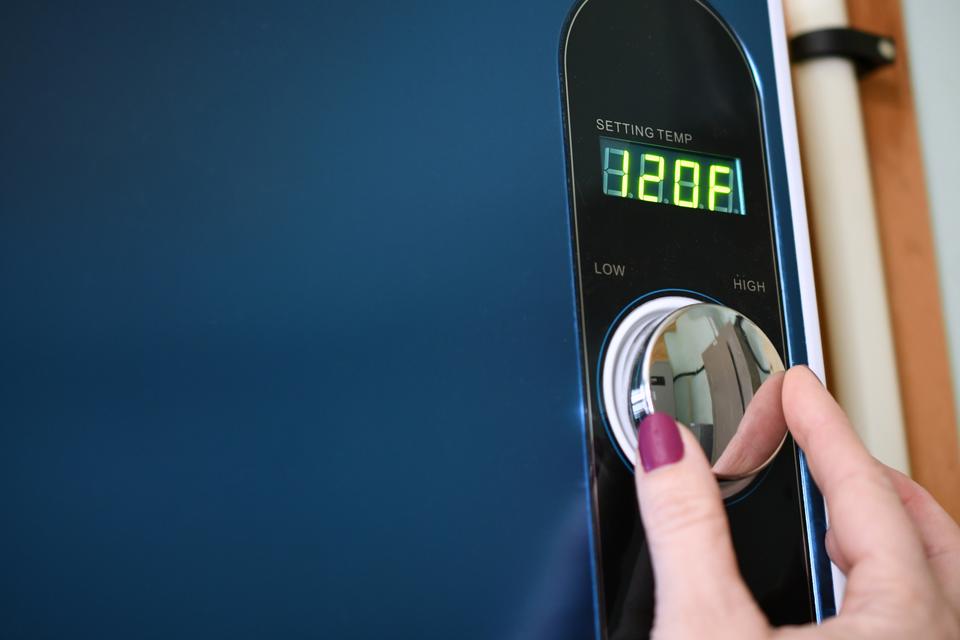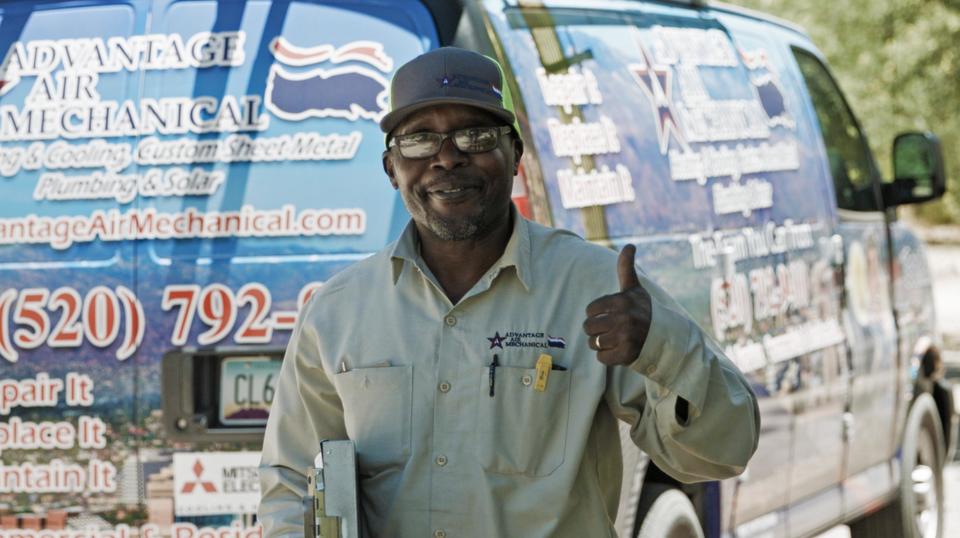What Are the Pros and Cons of Tankless Water Heaters?

Tankless water heaters are excellent for energy efficiency.
Over the past 30 years, tankless water heaters have become increasingly popular due to their small size and high energy efficiency. As a result, we see more and more Tucson homeowners opt for these convenient water-heating machines.
That said, tankless water heaters may not be the best option for every home. Depending on your circumstances and home layout, a traditional tank water heater may be the better choice.
We’ll share the advantages and disadvantages of tankless water heaters to help you determine whether they could be a good fit for you.
In this article, we’ll explain:
Before we jump into the pros and cons, let’s start by taking a quick look at how a tankless water heater works to give you some context.
Want a professional to help you choose the right water heater for your home?
Call Advantage Air Mechanical at (520) 792-9400. We’ve installed water heaters in Tucson homes for 30+ years. Our expert plumbers will provide you with honest water heater recommendations and flat-rate cost estimates.
How a Tankless Water Heater Works

Tankless water heaters can instantly heat water.
Tankless (also called “demand-type”) water heaters use heat created from natural gas or electricity to warm up water directly as needed, instead of storing hot water in a tank like traditional water heaters.
Here’s how the heating process works in a tankless unit:
- When you turn on a hot-water faucet, cold water flows into the tankless unit.
- From there, electric heating elements activate, or gas burners ignite to heat the cold water passing through the unit. A gas-powered unit uses a series of metal tubes called a heat exchanger to transfer the heat created by the burners to the cold water.
- After 15 to 20 seconds, hot water exits the tankless unit to the faucet or plumbing fixture.
Point-of-use vs. whole-home tankless units
Smaller tankless water heaters are called “point-of-use” units. These systems supply hot water to a single room or appliance and are typically installed near their service appliance, for example, under a kitchen sink or on a bathroom wall.
Larger tankless systems that service all of the hot-water appliances in your home are called “whole-home” units. Plumbers will typically install them on a wall in your garage, attic, or utility closet.
Now that you know a bit about how tankless water heaters operate, we'll take a look at their pros and cons.
Tankless Water Heater Pros and Cons

Tankless water heaters can help cut your energy consumption by 24-34%.
When it comes to water heaters, no system is 100% perfect. That said, one type of water heater may be better for your home than another. We’ll share the pros and cons of tankless units to give you a better idea of whether they could work for you.
Pros of tankless water heaters
- They take up less space than a tank: Since a plumber can mount tankless units on a wall, this frees up the floor space that a tank occupies typically. For this reason, tankless units are ideal for small homes and apartments.
- Highly energy-efficient: Energy.gov estimates that a tankless water heater is 24%–34% more energy efficient than a tank unit for homes that use 41 gallons of hot water or less daily. For homes that use a lot of hot water daily (86+ gallons), that percentage decreases to 8%–14%. Still, the point is that tankless systems use less energy to provide hot water than similar tank options.
- Provides an endless supply of hot water: As long as you’re not running every hot water appliance in your home at once, tankless water heaters can provide an infinite supply of hot water. Conversely, tank units require 30+ minutes to reheat water after the tank is drained.
- It lasts longer than a tank system:Tank water heaters typically last anywhere from 8 to 12 years, while tankless water heaters can last 20+ years.
Cons of tankless water heaters
- Higher upfront cost: The cost to install a tankless water heater is typically anywhere from $200 to $500 more than the cost to install a traditional tank unit.
- More expensive repairs: Although they are highly reliable, tankless water heaters are usually more costly to repair than tank units because they are more complex.
- May struggle to meet demand: If you have a large household and lots of hot-water appliances, you may max out the capacity of a tankless unit pretty fast. The solution to this problem would be to install multiple point-of-use units to help relieve the main whole-house unit. Of course, this would raise the cost of the installation even more.
How To Determine Which Type of Water Heater To Get
The best way to decide whether you should opt for a traditional tank water heater or a tankless unit is to consult a plumbing professional.
An Advantage Air plumbing expert can help you weigh the pros and cons of each system based on factors such as:
- The size of your home
- The number of hot water appliances in your home
- How often do you run hot water appliances simultaneously
- Your budget for upfront costs
- How much do you want to save on long-term energy costs
Considering each of these factors will give you a better idea of whether you should go with a tank or tankless water heater.
Plus, a professional can handle all of the water heater sizing calculations, so you don’t have to crunch any numbers to figure out which size to get.
For more information about choosing between a tank and tankless water heater, refer to our blog, “Traditional Tank Water Heater vs. Tankless Water Heater: Which is Best for My Tucson Home?”

Advantage Air plumbers are ready to help you pick the perfect water heater solution.
Want a water heater recommendation from a Tucson pro?
Call Advantage Air Mechanical at (520) 792-9400. Our highly-trained plumbing experts can help you find the perfect water heater solution for your home.